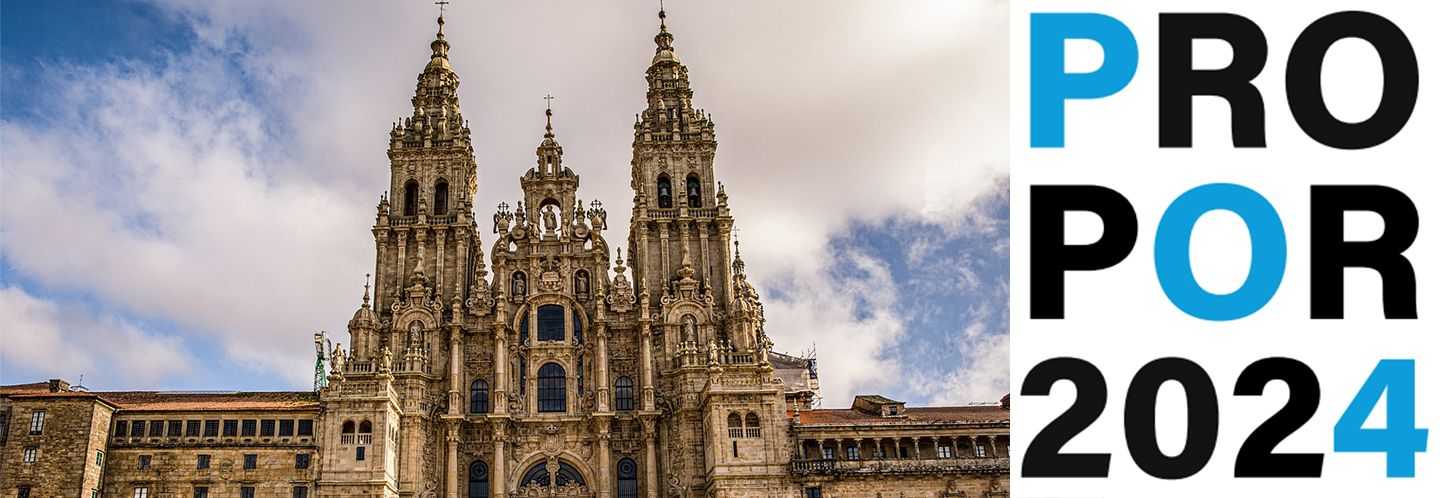
PROPOR, the world's most significant congress on Portuguese language processing, departs from a Lusophone country for the first time in its history and arrives in Santiago de Compostela
The primary event in the field of natural language processing and artificial intelligence, focusing on theoretical and technological aspects of written and spoken Portuguese, kicks off next Tuesday in Galicia. This edition will feature Galician with numerous works focused on the automatic processing of the language.
In less than twenty-four hours it will commence the sixteenth edition of the International Congress on Computational Processing of Portuguese (PROPOR-2024): a scientifically relevant meeting that, for the first time, takes place outside Lusophone countries. The organizers in Santiago de Compostela emphasize the significance of this event, stating that with its arrival in the city, there is a "return to the origin, as Galicia is the birthplace of the Portuguese language." Galician will play a prominent role in the event, featuring numerous works focused on the automatic processing of the local language.
Multiple Approaches to a Single Language
PROPOR-2024 will bring a sample of the research community in Portuguese language processing worldwide to Santiago de Compostela, with around 150 registered participants, mostly from Brazil and Portugal. The event will take place from March 12 to 15 at Cidade da Cultura. The organization of this meeting is led by CiTIUS, overseeing all details through the Nosotros Project research team. Pablo Gamallo, the affiliated researcher and president of the organizing committee, highlighted the importance of hosting a congress of this magnitude in the city. He stated, "It is fundamental for the future of Galician to ensure its presence in artificial intelligence devices and language models that people commonly use. Interaction with leading Portuguese and Brazilian groups will foster new collaborations, allowing us to access higher-quality linguistic resources for Galician. Access to Lusophone technology is excellent news for the future of Galician". Ramón y Cajal, a researcher from the Marcos García centre, also participates in the organization of PROPOR-24 as the program committee president.
PROPOR-24 will officially commence after the opening on the upcoming Wednesday, with an inaugural event featuring the Secretary General of Linguistic Policy of the Xunta de Galicia, Valentín García Gómez, the Mayor of Santiago de Compostela, Goretti Sanmartín, and the Vice-Rector of Faculty at USC, Ernesto González Seoane.
The main event will include 70 scientific communications, comprising oral presentations and posters, along with various associated events: 4 workshops (one focused on a competition between systems); 2 tutorials; 1 demonstrators' session; 1 industrial meeting, and 2 roundtable discussions.
The first roundtable for technology companies, chaired by José Ramom Pichel (CiTIUS & Imaxin|Software), will include participants Senén Barro (CiTIUS), Livy Real (Quinto Planta, Brazil), Diego Vázquez (Imaxin|Software), Carlos Amaral (Priberam, Portugal), and Paulo Cavalin (IBM, Brazil). The second roundtable, discussing scientific policy related to artificial intelligence and Portuguese/Galician language, chaired by António Blanco (Univ. de Lisboa), will include participants Ana Paula Laborinho (Director of the Organization of Ibero-American States - OEI, Portugal), Claudio Pinhanez (IBM & Vice-Director of C4AI, Brazil), and Ismael Gómez García (Director of Global Digital Strategy at OEI). Finally, the noteworthy profiles of the three guest speakers should be highlighted: Elias Feijo (USC), providing an overview of the history of Galician/Portuguese language from different perspectives; Gemma Boleda (Univ. Pompeu Fabra), focusing on the study of lexical changes, and Marta Ruiz Costa-Jussà (Meta AI/AI - Paris), a specialist in translation model evaluation methods.
PROPOR-2024 will offer attendees various socio-cultural activities, including a performance by Quico Cadaval and a concert by Laura LaMontagne. Additionally, the congress is sponsored by various public and private institutions, including the Department of Culture, Education, Vocational Training, and Universities (main sponsor); Santiago de Compostela City Council; AMTEGA; CESGA; Imaxin|Software; puntogal, and the Brazilian centre C4AI.